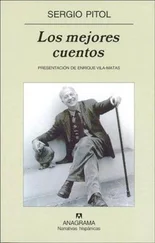While in Paris the Efrons lived in conditions of extreme poverty, in squalid neighborhoods on the city’s outskirts; changing residences inevitably meant descending into an even greater squalor. At times, all four slept in one room, without sanitary facilities. And under these conditions, crushed by the needs of the household, she wrote unceasingly. The awareness of her genius never abandoned her. The intense correspondence she maintained with Rilke in 1926, and the elegy that he wrote for her shortly before his death, were for her the highest praise that her effort deserved:
Waves, Marina, we’re ocean! Depths, Marina, we’re sky! Earth, Marina, we’re earth, thousand times Spring, the larks which an outburst of song flings toward the Invisible! We begin it as jubilation, from the first it wildly exceeds us! 18
That Rilke would sing her in one of his great elegies sheltered her from the cawing rooks who insulted her. By 1933, all sectors were against her: the Communists for her boundless praise of the old Russia, the crown, the Tsar and his family; and conservatives, on the other hand, for her admiration of Pasternak and Mayakovsky. Simon Karlinsky notes, “She had gone too far for the left and right at the same time. In the end no one spoke to her.” At the very end of their stay in France, Efron began working in a Soviet office of repatriation of Russian exiles, which left no doubt in the minds of the Russian exiles regarding his activities.
And then the big surprise! The body of a Soviet agent who had defected was found in Lausanne. One of the murderers was arrested. There were witnesses that saw him on different occasions enter the office of repatriation where Sergei Efron worked. Efron is summoned to a police station for questioning, after which he disappears and reappears months later in Moscow, where Ariadna was already living. Soviet intelligence services organized his flight to protect him, it was said, fearing perhaps that he would give details about the case, and perhaps about others. Would it not seem that the direction his life had taken was revenge, even if unconscious, for the humiliation he suffered years ago in Prague, for the accumulation of grievances, for the scorn in which Marina held him in every sphere, intellectual and sexual?
As Sergei and Ariadna moved increasingly closer toward Communism, Marina wrote relentless tributes to the Whites. The first, The Demesne of the Swans , was followed by another that had been conceived in Paris, Perekop , a long dark poem about the last battle fought by those crusaders who fascinated her so much and their final surrender in Perekop; in her final years she took notes to write a long elegy in memory of the Tsar’s family, of which only fragments remain. The two halves of the marriage gradually radicalized their positions. During her last period in Paris, she was no longer able to publish. For the first time, she began to feel devalued and out of place. The few letters she sent to distant friends reflect her disenchantment. Her housing conditions were atrocious, sordid rooms in squalid hotels; alone, she began to feel that even poetry itself was abandoning her. And in this condition of delirium, seeing no outlets in France, without friends, without means of subsistence, she committed the biggest mistake of her life: she returned to Russia, to live in a society that she hated and where she was hated, where she reunited with her family, a few friends from her youth — Ehrenburg, Pasternak, Prince Svyatopolk-Mirsky, who had converted to Marxism and repatriated — her sister Anastasia, her sisters-in-law and, above all, Sergei and Ariadna. She lived with her husband and daughter only a few weeks, later both were arrested, as well as her sister Anastasia, and for two years she led a ghostly life in Moscow, a shadow of other shadows. Mur rebels. He accused her of being responsible for the family’s misfortunes, for his father’s and sister’s imprisonment, for the absence of destiny that is being constructed for him. Then came the war, and she committed suicide.
In her lifetime, some of those who dealt with her, loved and admired her, were amazed by the conspiracy that existed between her genius and her inability to perceive reality.
Pasternak, one of her closest friends, sketched some features of Marina in his An Essay in Autobiography :
That Marina Tsvetaeva had always held her work between herself and the reality of daily life; and when she found this luxury beyond her means, when she felt that for her son’s sake she must, for a time, give up her passionate absorption in poetry and look around her soberly, she saw chaos, no longer screened by art, fixed, unfamiliar, motionless, and, not knowing where to run for terror, she hid in death, putting her neck into the noose as she might have hidden her head under her pillow. 19

12 This and other translations from Russian Life do not give the name of the translator. —Trans.
13 Translated by Max Hayward.
14 Translated by Philippe Radley.
15 Also translated by Radley.
16 Russian Life.
17 I was unable to find the entire quote in English translation. The first sentence was translated by Elaine Feinstein. —Trans.
18 Translated by Edward Snow.
19 Translated by Manya Harari.
At the Iveria Hotel. I’ve been in Tbilisi one full day. My room is on the seventh floor. The view is superb. I did a vast number of things today and I feel tired. Yesterday, I still didn’t know if I would come to Georgia. But I sent word to the literary chieftains that I was fed up with their vagueness and their mysteries, so the best thing to do would be to interrupt my trip though the USSR and return to Prague. I was given to understand that would happen, but a short time later a ticket to, yes, Tbilisi arrived by messenger, an employee from the bottom of the hierarchy, or so he referred to himself; I don’t know whether to apologize or scold myself for my thanklessness, because they had bestowed so many kindnesses on me and I had not responded in kind, I was now getting what I deserved, that is, his humble company. Even on the plane I found it hard to believe that I was heading to Tbilisi, Tiflís in Spanish (an obsolete name, even in Spanish publications the Georgians write Tbilisi), where I arrived at ten at night, replete with a splendid moon. Sensation of treading on royal ground! From what I was able to glimpse by moonlight, it is a splendid city, different from all other Soviet cities. Today I started my tour, I began to touch the strata that make it up, a constant process of mental construction or deconstruction, a trip through various cultural layers that have been superimposed on the region, leaving vestiges of what it has been: Hellas, Byzantium, Persia, the Slavs of the first millennium, the Christian churches of the fifth century, the influence of Central Asia, Sufism. Visually, bathed in evening light, Tbilisi is an Andalusian town nestled in the Caucasus. The Persian presence is equivalent to the Arab presence in Andalusia. By day it has other attributes, a majestic topography, a city of hills and canyons crossed by a river that can be seen from everywhere. The houses appear to rush toward the void, terraces and balconies fly through the air, over cliffs, through which flows the mighty Kura. I was just with the writers at their organization’s headquarters. They are truly the rebellion; at least the handful with whom I spoke. They have invited me to a banquet, a supra , at two in the afternoon. Last night, after arriving at the airport, I knew my stay in Georgia would be wonderful. Despite recent disappointments and inconveniences, I can say that it has been a memorable journey, and that the obstacles to reach my goal had a noticeable effect: they caused my interest in the region to grow. In The Tempest , Prospero magically devised an intricate plot so that Miranda, his daughter, and the heir to the kingdom of Naples will fall in love. It is the first step towards the unmasking of his enemies and their asking for forgiveness for having dethroned and exiled him. Many years have passed, and it is time to repair the wounds. The young couple’s love, and their subsequent marriage, is the bond that reunites the separated parties. It was enough that the two young lovers look into each other’s eyes to become bewitched. Prospero is happy because this event is an essential part of his strategy, but, as an intelligent man, he decides to thwart the lovers’ conversation, punish their love, knowing that when the triumph of love is easy, its value decreases. If they had read Shakespeare well, Russian writers would not have placed so many obstacles and difficulties in my way to reach Georgia. Their strategy was wrong. They destined that I find all the virtues of the world in this place. At the airport, I already noticed that the standard of living is much higher than the two major Russian cities: Moscow and Leningrad. As soon as I left the airport my sinusitis disappeared. And throughout the morning I have breathed beautifully.
Читать дальше













